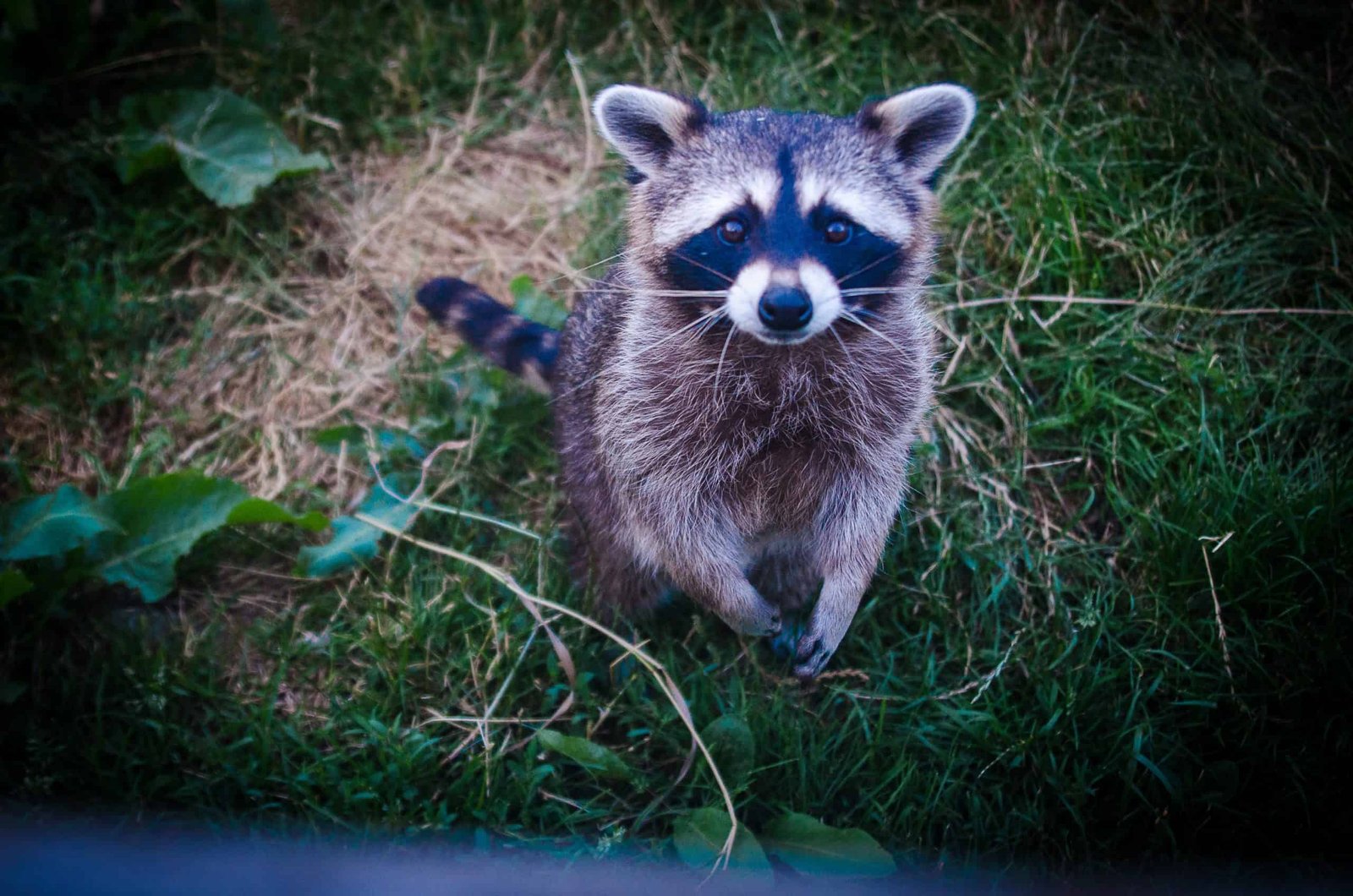Animals who eat eggs include a variety of creatures ranging from fish, amphibians, and reptiles, to birds and even some mammals.
Birds like ducks, chickens, and ostriches all feed their young with eggs, while lizards and other reptiles, such as iguanas, eat them for sustenance. Certain fish, such as the open-water cod, rely on eating eggs for survival.
And there are even a few mammals who may eat eggs on occasion, like the Malayan Sun Bear and Raccoons. Whatever the animal, eggs offer an excellent source of nutrition with plenty of vitamins and minerals, including healthy fats.
What is Ovivorous?
The term ovivorous describes an organism that consumes eggs, including birds, mammals, reptiles, amphibians, and fish. Sea otters eat the eggs of other fish, while robins eat the eggs of their own species. Some birds, like the common loon, also eat the eggs of other birds for nourishment.
This provides these creatures with valuable nutrients and benefits not found in other foods.
Do animals eat eggs?
Do animals eat eggs? It is an interesting question that depends on the type of animal. Wild birds, such as chickens, ducks, quail, and partridges, typically feed their young with eggs they lay, although adult birds may also eat eggs as part of their diet.
Some mammals, like moles, squirrels, and hedgehogs, will eat eggs if they find them. But for most animals, eggs are not a common part of their diet.
Of course, domesticated animals like cats, dogs, and horses may be offered eggs from their owners from time to time, as a treat. In summary, animals may or may not eat eggs depending on their species, natural habitat, and availability.
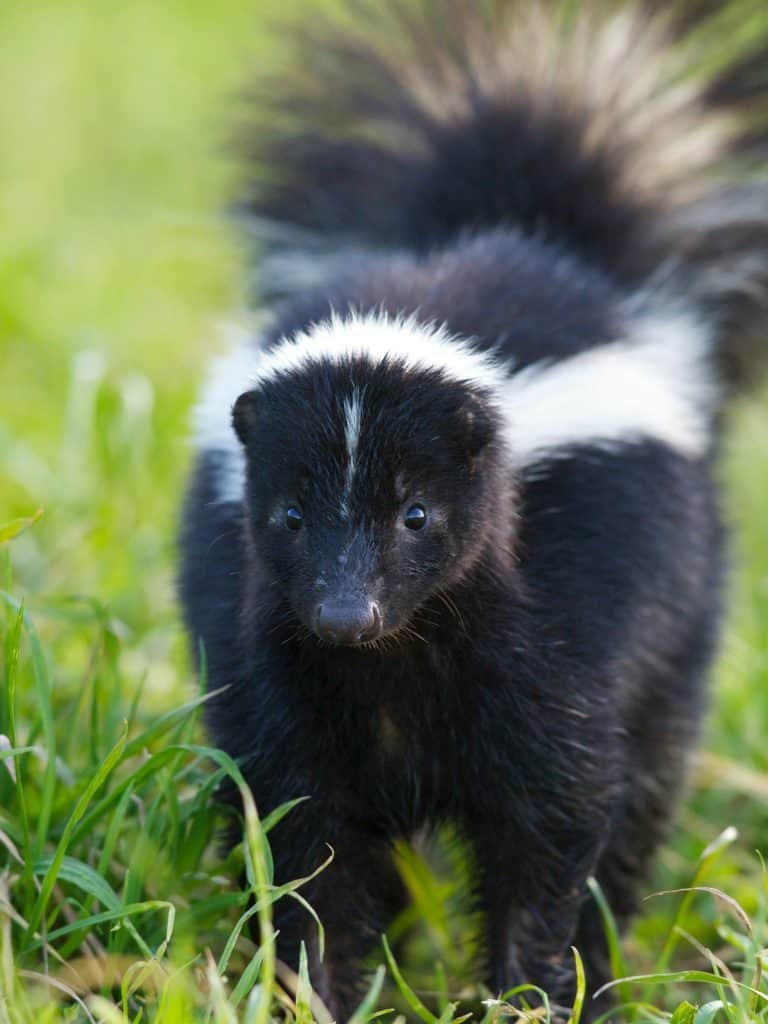
Do any wild animals eat eggs?
Wild animals often eat eggs as a source of nutrition, such as a grizzly bear snatching fish eggs from a spawning salmon run.
Ravens, seagulls, vultures, and eagles are some of the more common avian species that often consume eggs from nests or scavenge from dead animals.
Raccoons, skunks, and opossums often hunt for and consume eggs as a mainstay of their diet, particularly the eggs of ground-nesting birds like quail, wild turkey, and geese.
Other smaller creatures such as chipmunks and squirrels can often be seen consuming bird eggs in certain areas as well. Lastly, snakes can and do eat eggs, with many venomous snake species targeting and feeding upon eggs in order to supplement their regular diet.
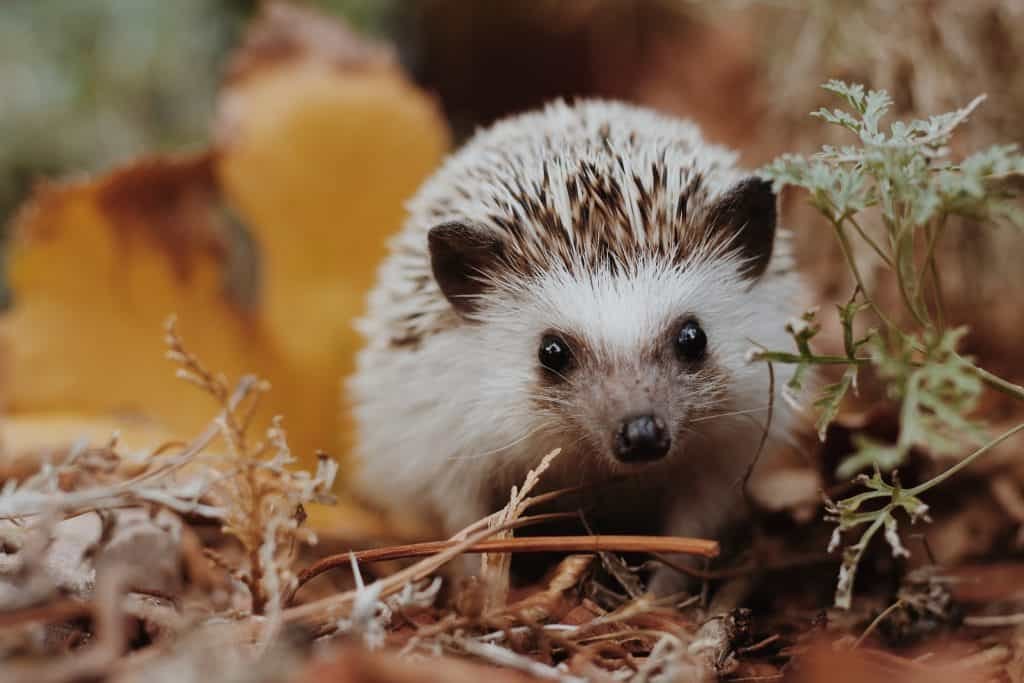
What is egg predation?
Egg predation is the act of one animal or organism eating the eggs of another. This type of predation is often seen in the wild, especially among bird species.
For example, larger birds may feed on the eggs of smaller birds in order to get nutrition. Egg predation is also found in mammals, reptiles, and fish species as they compete for resources.
In some cases, this may lead to egg raiding, where animals deliberately seek out the eggs of other species as a means of securing their own food. Egg predation can significantly reduce a population of animals and impact a species’ survival rate.
Birds that eat eggs
There are several species of birds that are known to eat eggs. Some examples are below.
- Blue jays
- House sparrows
- European starlings
- Northern mockingbirds
- Brown thrashers
- Oystercatchers
- Killdeer
- Willets
- Yellowlegs
- Avocets
It’s also worth noting that some bird species, like the cuckoo and the honeyguide, have evolved to lay their eggs in the nests of other bird species, a behavior known as brood parasitism. The young of these birds may hatch and consume the eggs of the host species.
What animals are attracted to eggs?
Many creatures are drawn to eggs as a source of nutrition, from birds and reptiles to mammals and insects.
Among birds, many species will look for eggs to consume or add to their nests. Snakes and other reptiles may also feed on eggs, while mammals like raccoons, skunks, foxes and coyotes can raid bird nests to find them. Insects such as ants and beetles may also search for and feed on abandoned eggs.
Eggs are, however, vulnerable to predation and scavenging, and animals have adapted over time to protect them.
Bird species often build nests in hard-to-find locations, or use camouflage to hide their eggs from potential predators. Despite this, eggs are still sought out by a variety of animals as a reliable food source.
Who eats the bird’s eggs?
A family of raccoons have been scurrying around the bird’s nest, taking away its precious eggs. Every night, the hungry raccoons try to get away with a few more eggs for their evening meal.
Despite the birds’ protests, the cunning creatures continue to snatch away the eggs to feed their ever-growing family. With every raid, the poor bird loses its potential chicks, leaving its hope for new generations of hatchlings in jeopardy.
Another animal is the snake which loves to eat bird eggs from the nests.
Which animal eats duck eggs?
The animal that commonly eats duck eggs is a raccoon. Raccoons are known for their inquisitive behavior and willingness to try anything, including finding and eating duck eggs.
Raccoons may even choose to create their own dens near ponds where ducks often lay their eggs, as they can be easy and nutritious prey.
They can then crack the eggs open and eat the contents, shells and all. Ducks may also be vulnerable to attack, so raccoons may be able to sneak up and snatch duck eggs right out of their nests.
Who eats the chicken eggs?
One of the most common animals that eat chicken eggs are rats. They often nest in farm buildings and can easily break open egg shells to get at the nutritious yolk and whites.
Rats have adapted to the human-altered environment and now survive around farms, chicken houses, and anywhere there is an ample supply of food.
They can decimate entire flocks of chickens, eating the eggs and then devouring the young chicks as well. Even worse, once they’ve gained access to the coop they can spread diseases to the hens, creating a much bigger problem for the farmer.
Fortunately, there are ways to prevent rats from stealing eggs such as trapping or baiting, and proper housing of chickens in the coop can help deter rats from accessing the eggs. You may also read do chicken eat their own eggs?
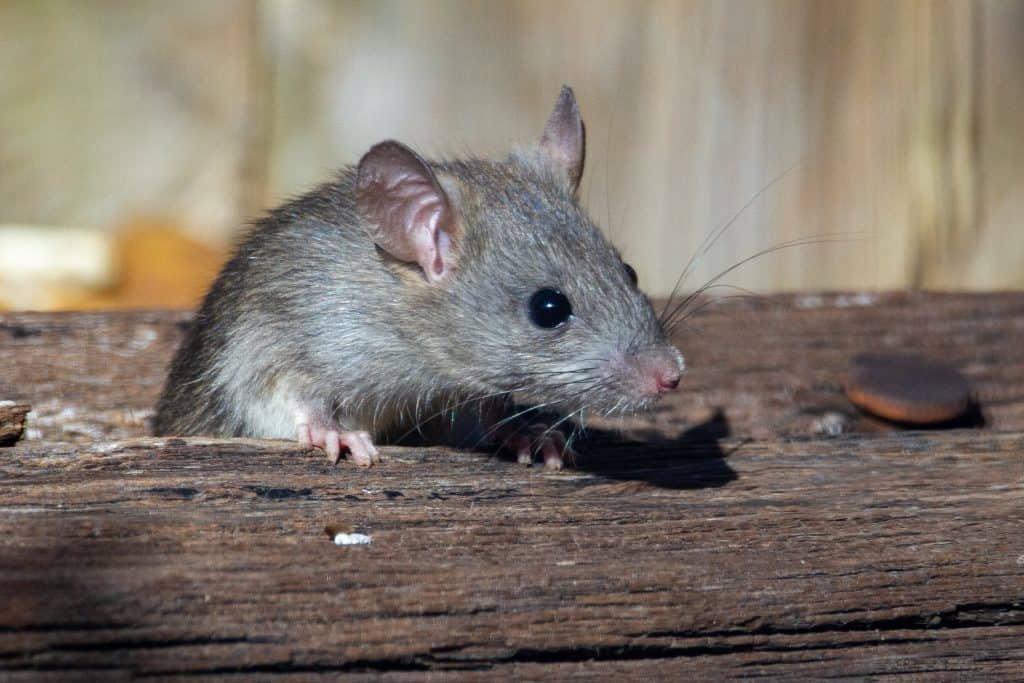
What animal eats chicken eggs and leaves the shell?
Foxes are notorious for raiding chicken coops and eating eggs, though they don’t actually consume the shell. In fact, foxes have special teeth for crushing the egg without puncturing the shell.
They usually do this in order to reach the yolk, which they consume, before leaving the eggshell behind. Unfortunately, this means foxes can decimate a farmer’s flock of chickens quite quickly, which is why they are considered pests by many.
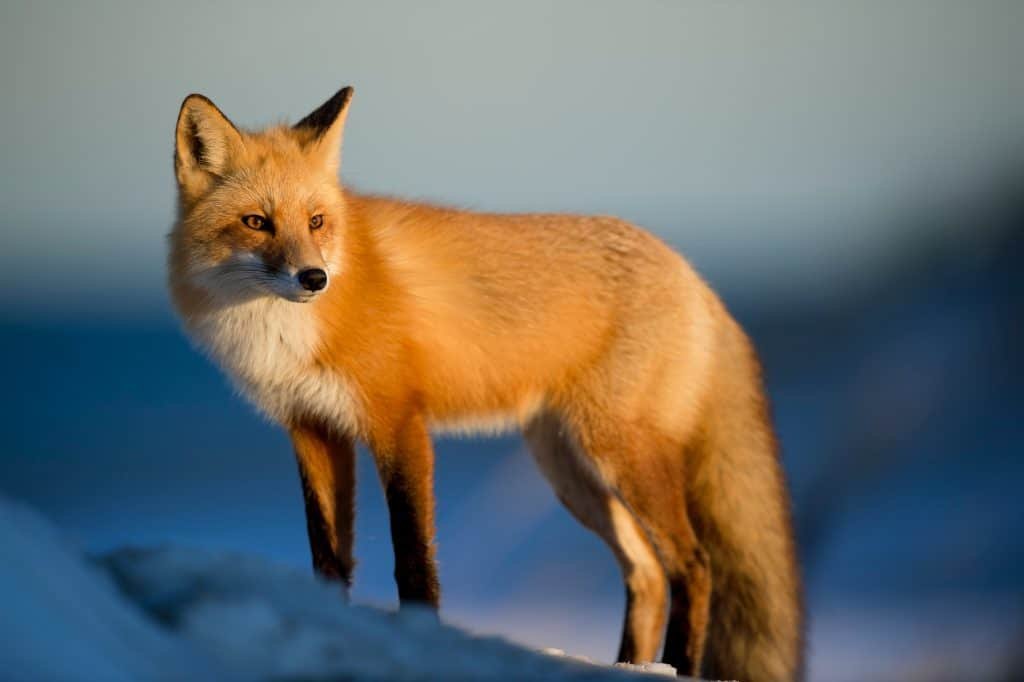
Do chipmunks eat chicken eggs?
Chipmunks are usually thought to feed on insects, seeds, fruits, and nuts, so chicken eggs are not typically included in their diet. Although chipmunks do eat some types of bird eggs, chicken eggs are usually too large for them.
While it’s not impossible for chipmunks to get their hands on a chicken egg, it’s not a common part of their diet and there would likely need to be other contributing factors to cause this to happen.
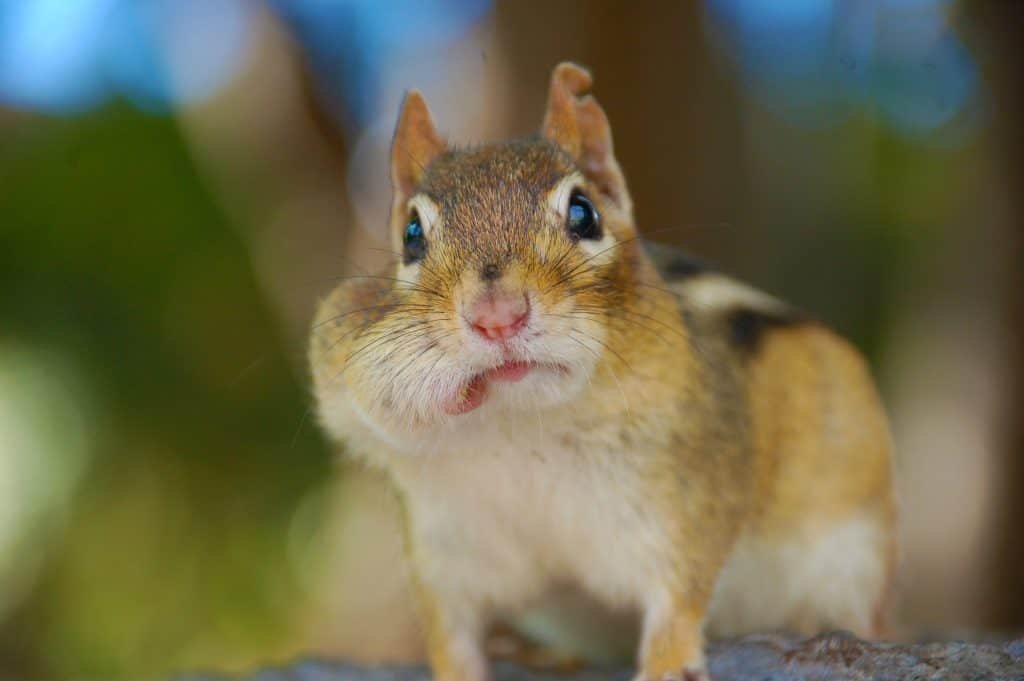
Which animals steal birds’ eggs to eat them?
A few animals known to steal eggs from birds are coyotes, foxes, raccoons, opossums, and weasels. These animals may eat the eggs of small ground-nesting birds or birds that make nests in tree hollows, depending on the type of predator and their particular prey.
In some cases, birds may become victims to multiple predators trying to steal their eggs or even the young chicks that hatched from them. Coyotes are especially infamous for stealing eggs, as they often scavenge the countryside looking for an easy meal.
Who is an egg eater?
In the animal kingdom, there are several species that are commonly referred to as egg eaters. Let’s have a look:
- Egg-eating snakes: These non-venomous snakes found in Africa, Madagascar, and parts of the Middle East primarily feed on bird eggs. They have specialized teeth that can break through the hard shells of eggs to consume the yolk and white inside. Examples include the African egg-eating snake and Madagascar egg-eating snake.
- Monitor lizards: Some species of monitor lizards, such as the savannah monitor, are known to eat bird and reptile eggs. They use their sharp teeth and powerful jaws to crack open the shells and consume the contents.
- Mammals: Some mammals, such as the echidna and the platypus, are known to lay eggs and then consume them for nutrition. Additionally, there are several species of rodents, such as rats and mice, that are known to consume bird and reptile eggs.
- Birds: Several species of birds are known to eat the eggs of other birds, including seagulls, crows, and ravens. This behavior is often seen as a threat to the survival of other bird species, as it can reduce their reproductive success.
What animal eats eggs whole?
One animal that is known to eat eggs whole is the egg-eating snake, also known as the Dasypeltis. These non-venomous snakes are found in parts of Africa, Madagascar, and the Middle East and they have specialized teeth that can break through the hard shell of an egg.
They then swallow the entire egg, yolk and white, without breaking it. This is an adaptation that allows egg-eating snakes to consume a high amount of protein, which is vital for their survival in their native habitats where other prey may be scarce.
Do birds eat bird eggs?
The answer is Yes, some species of birds do eat the eggs of other bird species. This is known as egg predation which we have discussed earlier.
It is a common phenomenon in the animal kingdom. Birds that are known to eat bird eggs include seagulls, crows, ravens, and jays, among others.
This behavior can reduce the reproductive success of the affected bird species and is often seen as a threat to their survival.
Additionally, some bird species, for instance brown-headed cowbirds, are known for laying their eggs in the nests of other bird species, which can result in the rejection or destruction of the host bird’s eggs.
What animals eat their own eggs?
Although it is not normal behavior, some animals do eat their own eggs; snakes, birds, select species of fish and invertebrates like snails and spiders.
This behaviour is usually observed only under extraordinary conditions, like if the eggs are infertile or if the animal is feeling the strain of some stressful event. It is not an everyday occurrence and the majority of animals do not participate in such activities.
Why do birds destroy their eggs?
Birds do not intentionally destroy their own eggs. Occasionally, eggs may get damaged or cracked due to accidental impacts or other disturbances within the nest.
In such cases, the parents may remove or abandon the damaged eggs to focus their energy and resources on caring for the remaining healthy eggs or hatchlings.
Additionally, predators or parasites may attack the eggs, leading to their destruction. In some cases, the parents may also remove or destroy infertile or non-viable eggs to prevent wasting their resources on them.
Why do birds throw their eggs away?
Birds usually don’t throw away their eggs on purpose. However, mishaps like impacts or disturbances within the nest may cause them to be cracked or broken.
The parents will then take away these eggs and instead use their resources and energy to nurture the healthy ones or take care of their young ones. Furthermore, when predators or parasites attack the eggs, the parents may have to get rid of them too.
Occasionally, infertile or non-viable eggs may be destroyed as well to stop wasting resources on them. Despite these occurrences, birds are physically unable to pick up and throw objects and therefore, don’t actively throw away their eggs.
Examples of animals that eat eggs
There are many animals that eat eggs as part of their diet, including:
- Snakes
- Birds, such as crows and magpies
- Raccoons
- Skunks
- Opossums
- Foxes
- Badgers
- Certain species of fish, such as salmon and trout
- Insects, such as ants and termites
- Some reptiles, such as turtles and lizards.
It is important to note that not all animals that eat eggs do so exclusively or as their primary food source, and some may only consume eggs opportunistically or under certain circumstances.
Poultry Predator Factors
Poultry can face a number of predator factors that threaten their safety and well-being. Some of the most common predator factors that can affect poultry include:
- Land predators: These include animals such as foxes, coyotes, raccoons, skunks, and dogs, which can dig under or climb over fences to gain access to poultry.
- Avian predators: Birds of prey, such as hawks and owls, can pose a threat to poultry, especially young or small birds.
- Rodents: Mice and rats can consume eggs, as well as prey on young or injured birds.
- Snakes: Snakes, such as rat snakes, can climb into coops and consume eggs or prey on young birds.
- Insects: Insects, such as mites and lice, can infest coops and cause health problems for poultry.
- Weather: Extreme weather events, such as tornadoes, hurricanes, or heavy snowfall, can damage coops and threaten the safety of poultry.
It is important to take steps to protect poultry from these predator factors, such as securing coops with sturdy fencing, covering coops with wire mesh, and providing proper shelter and nesting boxes for birds.
How to prevent poultry from predators?
There are several measures that can be taken to prevent poultry from predators:
- Secure the coop: Build a secure coop with sturdy walls and a roof, and use strong mesh or hardware cloth to cover all openings, including windows and doors. Make sure to bury the fencing or mesh around the perimeter of the coop at least 12 inches deep to prevent predators from digging under it.
- Provide adequate lighting: Install motion-activated lights around the coop to deter nocturnal predators.
- Keep the coop clean: Remove any spilled feed or debris around the coop, as this can attract rodents and other predators.
- Keep food and water inside the coop: Do not leave food and water outside the coop, as this can attract predators.
- Use predator-proof feeders and waterers: Use feeders and waterers that are designed to be predator-proof, with lids or covers that can be securely fastened.
- Keep birds locked in the coop at night: Lock birds in the coop at night to prevent them from being attacked by nocturnal predators.
- Use guard animals: Consider using guard animals, such as dogs or donkeys, to protect the poultry from predators.
By taking these measures, you can help protect your poultry from predators and ensure their safety and well-being.
Final Words
To sum up, it is important to remember that many animals consume eggs, from birds and reptiles to invertebrates. The factors that contribute to egg-eating behavior vary, from nutritional needs to the inability to access other food sources. Despite these varied reasons, the importance of protecting poultry from predation remains the same. Taking measures to protect poultry from predators can help maintain both the safety and well-being of domesticated and wild bird populations alike.
Recent Posts
What Does Kiviak and Its Eggs Really Taste Like and How Do You Even Eat It?
Kiviak and its eggs taste like fermented blue cheese mixed with oily game meat, wrapped in a punch of ammonia. This dish, found in Greenland, is made by stuffing hundreds of whole auk birds into a...
Are Ethical Concerns in Egg and Chicken Farming Being Ignored?
Egg and chicken farming has raised significant ethical concerns, affecting both the animals involved and the consumers who rely on these products. The conditions in which chickens are raised, their...

